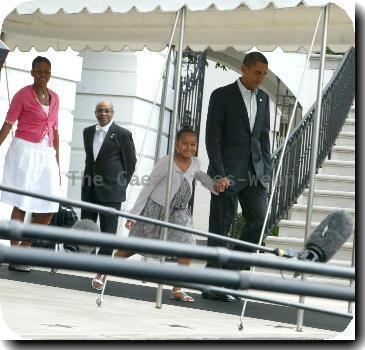Starting Monday, overseas passengers on some US-bound flights face ‘enhanced screening’
By Lou Kesten, APMonday, January 4, 2010
Passengers on US-bound flights face more screening
WASHINGTON — Some people traveling to the United States from or through Yemen, Nigeria, Saudi Arabia and 11 other countries were subjected to extra security screening, including full body pat-downs, Monday as U.S. officials refined their response to a failed terrorist attack in Detroit on Christmas.
The Transportation Security Administration outlined the new rules in a directive sent to airlines Sunday. They went into effect Monday, but initial reports from several European countries indicated that they were still scrambling to digest and implement the new rules.
Many other passengers who are not from those 14 countries or traveling through them will continue to see additional screening measures, according to a senior TSA official. For instance, in another refinement of measures put in place after the Christmas incident, it is now up to the plane’s captain whether to require passengers to put away electronic devices during the flight and to remain seated for the final hour before landing. The official was not authorized to speak publicly and requested anonymity.
TSA also said Sunday that all passengers on U.S.-bound international flights will be subject to random screening and airports were directed to increase “threat-based” screening of passengers acting in a suspicious manner.
People who are from or traveling from or through these countries are supposed to have full-body pat-downs and have their carryon luggage checked: Cuba, Iran, Sudan, Syria, Afghanistan, Algeria, Iraq, Lebanon, Libya, Nigeria, Pakistan, Saudi Arabia, Somalia, and Yemen.
The U.S. has designated Cuba, Iran, Sudan and Syria to be state sponsors of terrorism. The other 10 countries are considered “of interest.” People from there or traveling through there could also be subject to full-body scanning and explosive detection technology as part of their screening.
The new security measures come in response to the failed Christmas Day attempt to bomb a jetliner as it approached Detroit after a flight from Amsterdam. Witnesses said a 23-year-old Nigerian, Umar Farouk Abdulmutallab, ignited an explosive mixture but it failed to do serious damage to the Northwest jetliner or its passengers. He has told U.S. investigators he received training and instructions from al-Qaida operatives in Yemen.
President Barack Obama, who returned to Washington from his Hawaiian vacation, was meeting with his homeland security adviser on Monday. The deputy homeland security secretary was traveling to London on Monday to meet with officials on international aviation security.
TSA security directives are issued to the airlines to be carried out.
David Castelveter, spokesman for the Air Transport Association, which represents major U.S. air carriers, said he would not discuss any new TSA measures because doing so might compromise security. “We are not having discussions about the measures or how they work or do not work,” Castelveter said in an interview. He said the measures are being implemented with the least amount of customer inconvenience possible.
If the security measures are not followed, the TSA can penalize the airlines, according to another TSA official who was not authorized to speak about the enforcement rules. The penalties could include warnings, fines and recalcitrant airlines could ultimately be barred from flying to the U.S.
A Saudi security official, also speaking on condition of anonymity, says there are more security personnel at the airport in Riyadh. He had no other details.
A spokesman for Pakistan International Airline said the company has instituted new security standards for U.S.-bound passengers.
Passengers are subjected to special screening, including full body searches, in a designated area of the departure lounge, said the spokesman, Sultan Hasan. The airline has run advertisements in newspapers to advise passengers of the stepped-up security.
British Prime Minister Gordon Brown announced Sunday that full body scanners would be introduced in British airports and officials in Amsterdam said last week they would begin using the scanners on passengers bound for the U.S.
In the Yemeni capital, security personnel at the San’a airport were ordered to apply strict measures, including careful baggage examinations and patting down travelers, especially those departing for the United States as the final destination, an official said.
The security official, speaking on condition of anonymity because he is not allowed to talk about security measures to the media, said the airport was expecting to receive some new equipment to provide better security.
Associated Press writers Joan Lowy in Washington and Ahmed Al-Haj in San’a, Yemen contributed to this report.
On the Net:
TSA: www.tsa.gov
Tags: Africa, Airport Security, Barack Obama, Christmas, Europe, Holidays, Middle East, North Africa, North America, Occasions, Sana'a, Saudi Arabia, Syria, Transportation, United Kingdom, United States, Washington, Western Europe, Yemen



